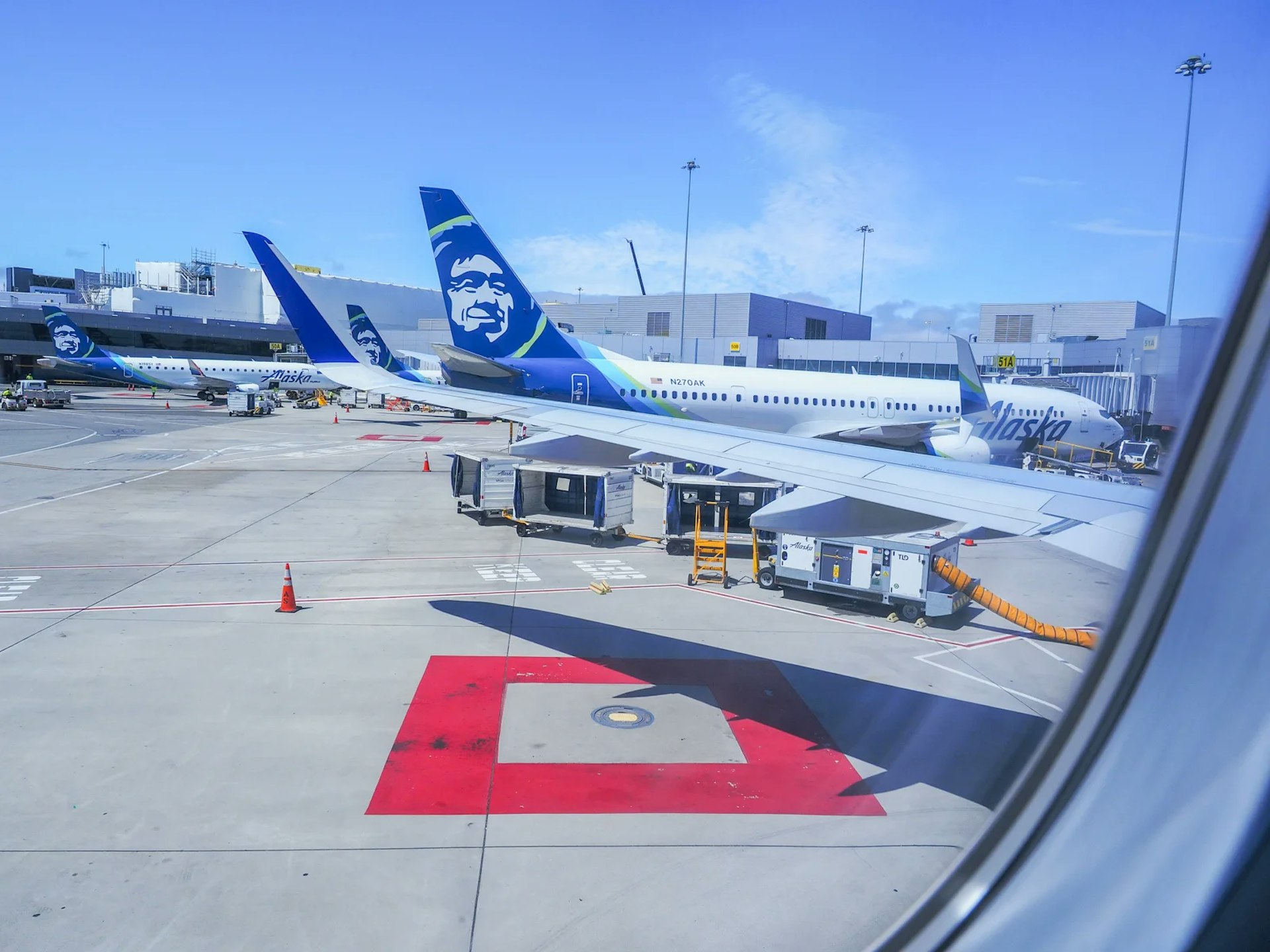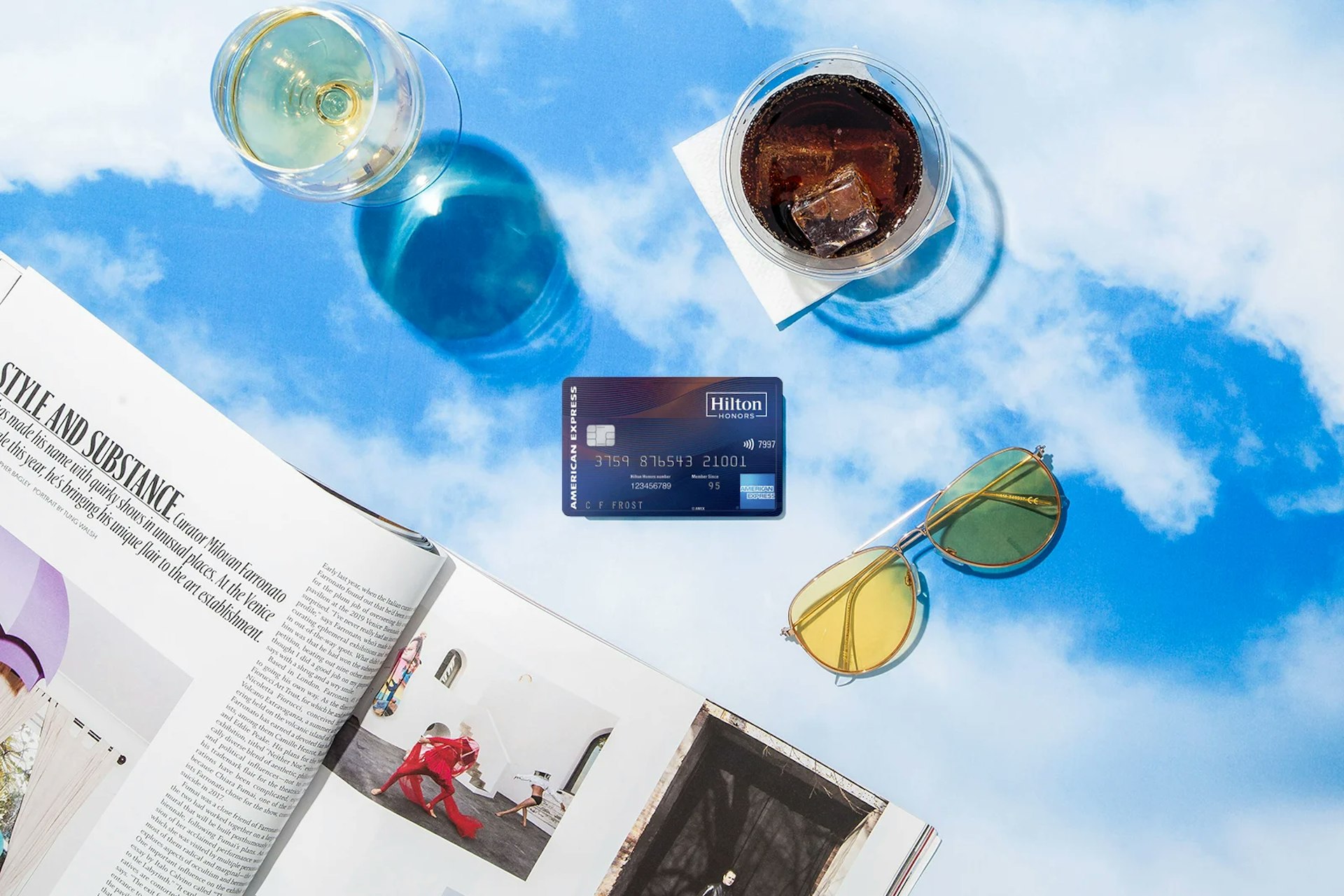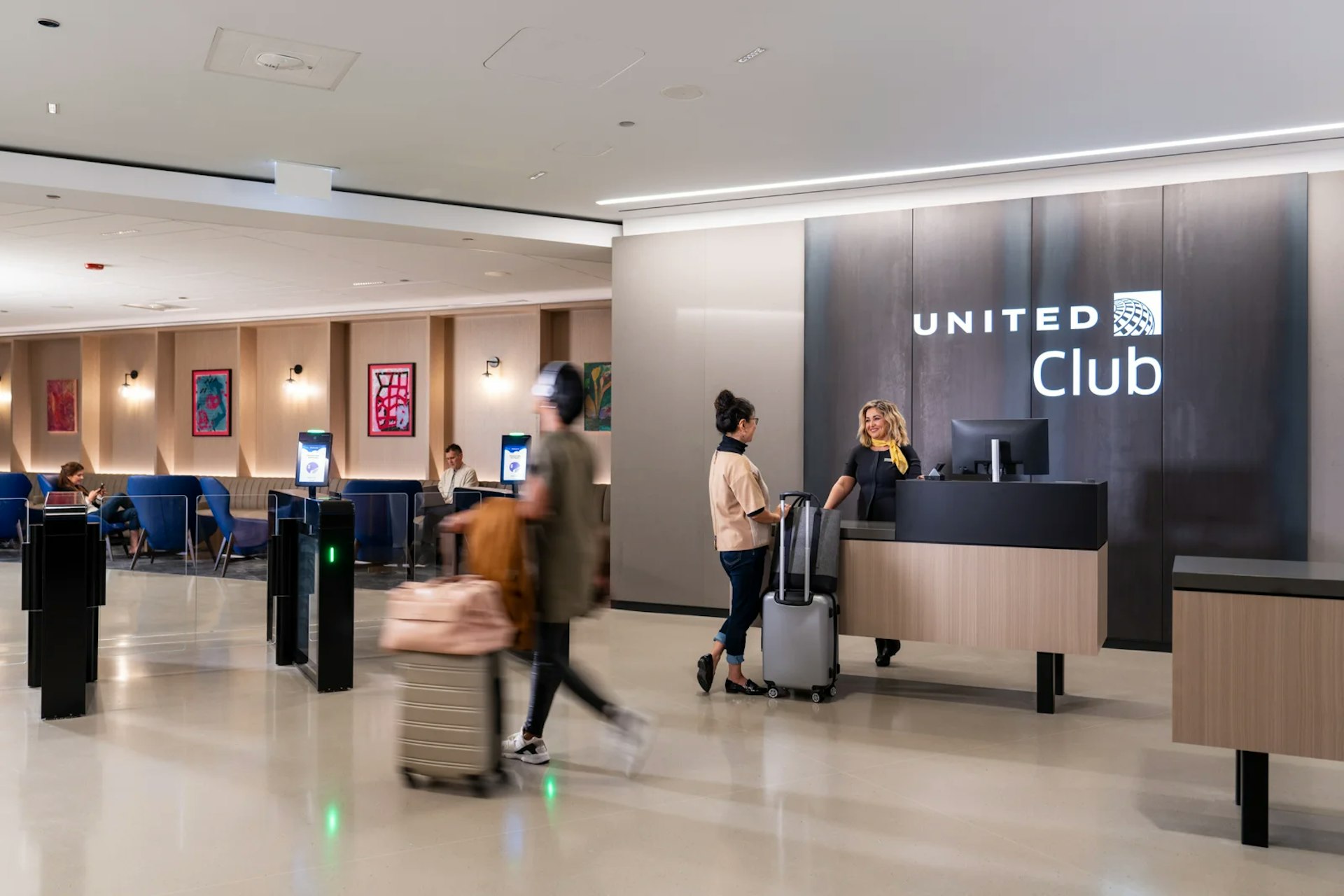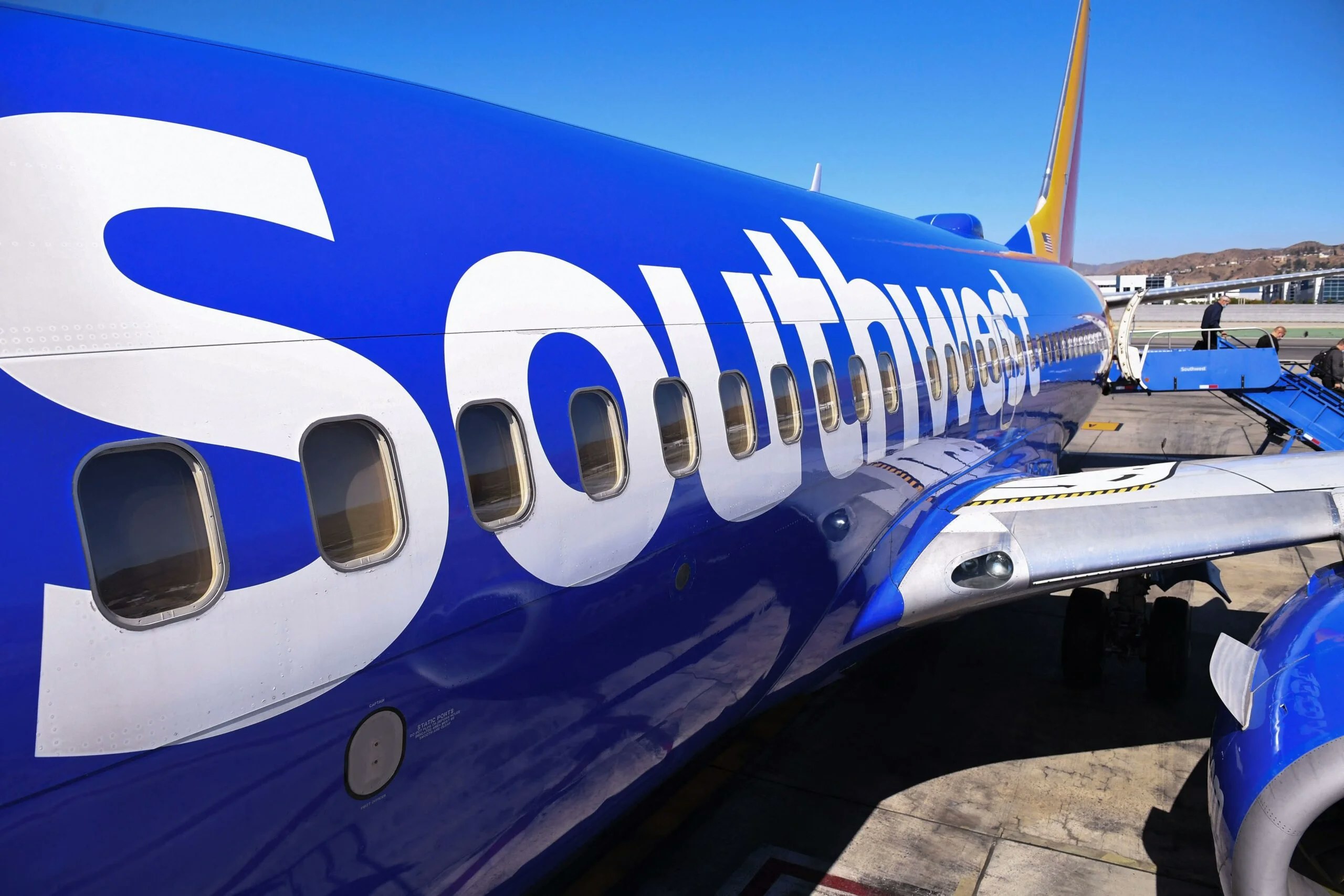When I got into the points and miles world a decade ago, it was a niche “hobby,” and there were few resources to help newbies get started. I had to dig through countless blogs, forums and read loyalty program terms and conditions obsessively to learn all the tips and tricks. Nowadays, social media is swarming with travel hackers leveraging points and miles for exotic vacations that would otherwise cost tens of thousands of dollars.
Miles and points can be an excellent way to save money on travel, regardless of your objectives. By signing up for airline loyalty programs and credit cards, you can save up for discounted flights, free hotel stays, car rentals and more. Not only does travel become more accessible with points and miles, but you can upgrade your travel experience significantly by flying in first class and staying in luxury hotels.
If you’ve been curious about points and miles but unsure how to get started, you’ve come to the right place. Here’s everything you need to know to get started:
Start with a travel goal
Setting a travel goal before earning points and miles is an essential first step. By setting a goal, you can determine which loyalty program best suits your needs and maximize its earning potential. If you’re a budget traveler, you’ll need to earn different points than if your goal was a luxury vacation. Figuring out what you’ll use your points for can also help you determine whether credit card annual fees are worth paying to achieve that goal.
You don’t want to earn points without purpose and realize (too late) that you can’t travel to your dream destination with those rewards. Or that the airline you’ve saved up miles for your family vacation only releases 1-2 seats in the cabin you hoped to fly. Planning ahead and setting goals is the crucial first step in mapping out your rewards strategy.
Find the best loyalty program to fit your needs
When looking for the best loyalty program to fit your needs, consider what type of rewards you’re looking for. There are three primary types of loyalty points you should familiarize yourself with. Ideally, you should diversify by having at least two types of points readily available: Airline miles, hotel points and transferable rewards.
You may decide that hotel points don’t fit your travel goals because you prefer boutique hotels or cheap bookings through travel agencies. You can certainly go without earning hotel points. You may even decide you don’t want to fly in the near future, and airline miles aren’t useful for your goals. However, transferable rewards are one type of currency you don’t want to skip out on. They’re a good fit for virtually any traveler and provide the ultimate redemption flexibility.

Airline miles
Most airline miles can be used for virtually any travel expense, but the best redemption is for flights. You’ll get the most value from airline miles by using them for international business and first-class travel, though there are always exceptions. Airlines like Delta, Air France and KLM often run award travel sales, discounting economy tickets by as much as 50%.
Which miles you should earn depends on your travel goals and which airline your local airport is serviced by. If you live in San Francisco, you have many options since all the major airlines serve that airport with both domestic and international flights. A great way to determine which airlines and routes are available is to visit your local airport’s Wikipedia page. See the “airlines and destinations” section for a comprehensive list.
If you want to travel internationally, your best bet is to earn miles from an airline that is part of an airline alliance: One World, Star Alliance or SkyTeam. Alliances can help you travel to more places since your miles can be redeemed on partner airlines.
If you want to stick to domestic travel, look at airlines primarily serving those markets. Southwest Airlines is a popular option for West Coast travelers; while JetBlue has a vast network on the East Coast and is expanding to international markets.
Transferable rewards
Transferable rewards are the ideal points currency to start. They provide the most flexibility since you can redeem them at a flat rate towards travel purchases or transfer them to select airline and hotel loyalty points. Why is this so crucial? Because airline miles and hotel points are constantly getting devalued – sometimes with no notice. Transferable rewards protect you against these devaluations because you’re not tied to a single currency.
For example, Virgin Atlantic Flying Club recently increased redemption rates for All Nippon Airways (ANA) first-class tickets by 42%. Overnight, without notice, these awards now cost 145,000 points round trip from the West Coast and 170,000 from the East Coast. That left a lot of customers frustrated who had been saving up for that award and now it costs significantly more.
If you have been earning transferable rewards – specifically American Express Membership Rewards** – you’re in luck. Because Membership Rewards is also a 1:1 transfer partner of ANA Mileage Club, which charges 150,000 miles roundtrip for these trips. Instead of transferring your miles to a devalued Virgin Atlantic program, you can transfer them to ANA Mileage Club and 20,000 points on East Coast-departing flights.
Some good transferable rewards options include American Express Membership Rewards**, Capital One miles, Chase Ultimate Rewards and Citi ThankYou points.

Hotel points
Hotel points are great for covering hotels and even vacation homes during your travels. Seven major hotel chains are worth considering: Accor Live Limitless, Choice Privileges, Hilton Honors, IHG One, Marriott Bonvoy, World of Hyatt and Wyndham Rewards. These programs partner with transferable rewards currencies, so you don’t need a designated hotel credit card to earn their points.
Marriott is the largest hotel chain in the world, while Hyatt is popular for its exceptional elite benefits and being one of the few hotels that still publishes an award chart. IHG One has a vast network of budget and luxury hotels, while Hilton can be found virtually anywhere in the world. Wyndham is excellent for families since free nights start at just 1500 points per bedroom. Wyndham has a vast network of timeshares you can book in popular destinations like Hawaii and Las Vegas, making it a great choice to stretch your points further and provide more space for large groups.
Start earning points and miles
Earning points and miles used to require extensive travel, but that’s not the case anymore. Many airlines offer rewards programs that allow you to earn miles by shopping with their partners, using their credit cards, booking hotels and rental cars through them, dining out and shopping with their retail partners. Some methods require minimal effort, making it easy to accrue enough points for your dream vacation. Here’s how to earn points and miles without actually traveling:
Credit cards
Credit cards are the single best way to earn points and miles quickly. The best credit cards offer welcome bonuses ranging from 50,000 or more after you complete a spending requirement. When evaluating credit cards, consider the welcome bonus, your travel goals and spending habits. Be sure to get a credit card that rewards your most significant spending categories (i.e., groceries, dining, gas, travel) at a reasonable annual fee.
You should also consider credit card perks that might improve your travel experience and lower out-of-pocket costs, like airline fee credits, free checked bags and elite status upgrades. These benefits can save you money on travel and offset the annual fees on these cards.

Shopping portals
Every major airline and hotel loyalty program has a shopping portal where members get rewarded for shopping with popular retailers. All you have to do is click through these portals to your favorite retailer and you’ll automatically earn extra rewards for every dollar spent. The exact amount varies by retailer, but you’ll typically earn at least 1 additional point per dollar spent. Here’s a list of shopping portals affiliated with popular loyalty programs:
During the holidays and back-to-school season, many portals offer additional bonuses for meeting certain spending thresholds. To find the highest payouts, you can head to Cashback Monitor and enter the retailer name you want to shop with. You’ll get a list of the shopping portals offering the highest rewards with that retailer.

Dining rewards programs
Earning points with dining rewards programs is one of the easiest ways to earn miles on autopilot. It’s as simple as signing up for the program, registering your credit card and then using it at participating restaurants. You’ll earn up to 8 points for every dollar spent, plus additional bonuses for writing reviews and meeting specific spending requirements. Most of these dining rewards programs are run by the same rewards network, so you can’t register the same credit card with multiple programs at a time.
You can even register a debit card if you don’t have credit, allowing you to earn points with every purchase automatically.
- Alaska Mileage Plan Dining: Earn 1500 Mileage Plan miles after spending $30 and writing a review within 30 days. Plus, earn up to 5 miles per $1 at participating restaurants.
- American AAdvantage Dining: Earn 500 AAdvantage miles after spending $25 within 30 days of registering and writing a review, plus up to 5 miles per $1 at participating restaurants.
- Delta SkyMiles Dining: Earn 500 SkyMiles after spending $30 within 30 days, plus up to 1 per $1 at participating restaurants.
- Free Spirit Dining: Earn 500 Free Spirit bonus points after spending $30 within 30 days of joining and writing a review, plus up to 5 miles per $1 at participating restaurants.
- Hilton Honors Dining: Earn 500 points after spending $25 within 30 days and writing a review. Plus, earn up to 8 points per $1 at participating restaurants.
- IHG Rewards Dining: Earn 1000 IHG points after spending $30 within 30 days of joining and writing a review. Plus, earn up to 8 points per $1 at participating restaurants.
- JetBlue TrueBlue Dining: Earn 3 points per $1 at participating restaurants.
- Marriott Eat Around Town: Earn up to 6000 Bonvoy points after spending $90 over three visits within 60 days. Plus, earn up to 6 points per $1 at participating restaurants.
- Southwest Rapid Rewards Dining: Earn 500 points after spending $25 within 30 days and writing a review. Plus, earn up to 3 miles per $1 at participating restaurants.
- United MileagePlus Dining: Earn 500 MileagePlus miles after spending $25 within 30 days of joining and writing a review, plus up to 5 miles per $1 at participating restaurants.
Sign up for bonus point promotions
To earn the most points possible, you need to sign up for bonus points promotions. Both hotels and airlines periodically offer these on stays and flights. Members have to register for most promotions to earn extra points and miles. Hilton routinely offers double points on stays, while Hyatt gravitates towards flat-rate bonuses (i.e., 1000 bonus points per stay).
You can navigate to the “offers” page of most hotel and airline loyalty websites to find the latest one. You can also sign up for offers from each program, so you’ll never miss one. Most email notifications allow you to register for promotions with just one click.
If you don’t want an inbox full of promotional emails from loyalty programs, consider setting up a separate email just for that purpose. That way, you keep those emails separate from personal and business emails, assuring you don’t miss out on important messages while staying in the loop.
Work on earning elite status
Once you’ve figured out which points and miles to earn, it’s time to consider elite status. Airlines and hotels bestow elite status on their most loyal customers. Earning elite status typically requires a lot of traveling, but the benefits pay off in spades. Top-tier elites qualify for upgrades, freebies (checked bags, breakfast, etc.), bonus points and other valuable perks. If you’re planning a trip, having elite status (or some way to leverage those trips for fast-tracking status) can be immensely beneficial.
Perks like complimentary breakfast and executive lounge access can cut your food budget down significantly while providing convenience during your travels. Free checked bags can add up to hundreds of dollars in savings on a single trip. But you don’t have to fly or stay at hotels frequently to earn status. Most airlines and hotels allow you to earn elite status through credit cards alone.

American AAdvantage
American Airlines switched to a new elite status scheme where you earn 1 Loyalty Point for every dollar spent. That includes credit card spending, shopping portal purchases, dining rewards, and everything else. This can help you earn status faster, especially if you have a co-branded credit card.
American Airlines has five credit cards you can earn Loyalty Points with: The American Airlines AAdvantage® MileUp® Mastercard®, Citi® / AAdvantage® Platinum Select® Mastercard®, Citi® / AAdvantage® Executive Mastercard®, CitiBusiness® / AAdvantage® Platinum Select® Mastercard® and AAdvantage® Aviator® Red World Elite Mastercard®. The AAdvantage Executive Card even comes with 10,000 bonus Loyalty Points annually when you spend at least $40,000 on the card.
You earn AAdvantage Gold status after earning 40,000 Loyalty Points and can earn top-tier Executive Platinum status after 200,000.

Delta SkyMiles
Delta uses three metrics to calculate progress toward elite status: Medallion Qualification Miles (MQMs), Medallion Qualification Dollars (MQDs) and Medallion Qualification Segments (MQSs). MQMS are the number of miles flown, MQDs are the dollar amount spent and MQSs are the number of segments flown. You can earn status with a combination of MQDs and either MQMs or MSQs.
You can earn MQMs and get the MQD requirement waived with select Delta credit cards. Waiving the MQD for Delta Silver, Gold or Platinum status requires $25,000 in credit card spending per calendar year. For top-tier Diamond status, you’ll need to spend $250,000 per calendar year on these cards:
- Delta SkyMiles® Reserve American Express Card**: Earn 30,000 MQMs after spending $15,000 in a calendar year, up to four times.
- Delta SkyMiles® Reserve Business American Express Card**: Earn 30,000 MQMs after spending $15,000 in a calendar year, up to four times.
- Delta SkyMiles® Platinum American Express Card**: Earn 10,000 MQMs after spending $25,000 in a calendar year, up to two times.
- Delta SkyMiles® Platinum Business American Express Card**: Earn 10,000 MQMs after spending $25,000 in a calendar year, up to two times.

Hilton Honors
Hilton is the only hotel loyalty program that offers top-tier status just for having a credit card. The Hilton Honors Aspire Card* has a $450 annual fee but gets you instant Hilton Diamond status. Diamond members enjoy complimentary breakfast or food and beverage credits at most hotels, executive lounge access (think: complimentary afternoon tea, evening appetizers, etc.), 100% bonus points, space-available room upgrades and more. Cardholders also get an annual free night, a $250 resort credit at participating hotels, a $250 airline fee credit and lots of other valuable perks. If you want to bypass Hilton’s 60-night or 30-stay requirement for Diamond status, the Aspire Card is the way to do it.
For a cheaper alternative (and lower status), you can opt for the following Hilton cards:
- Hilton Honors Card* (no annual fee): Hilton Honors Silver status. Upgrade to Gold after spending $20,000 on eligible purchases in a calendar year.
- Hilton Honors Surpass® Card* ($95 annual fee): Hilton Honors Gold status. Upgrade to Diamond after spending $40,000 on eligible purchases in a calendar year.
- Hilton Honors Business Card* ($95 annual fee): Hilton Honors Gold status.

JetBlue TrueBlue
JetBlue recently switched to a “tile” system for determining Mosaic elite status. Members earn 1 tile for every $100 spent, and it takes 50 tiles to reach the first elite status tier. Alternatively, members can earn 1 tile for every $1000 in credit card spending. Mosaic 1 status unlocks valuable benefits like two free checked bags, priority boarding and security, extra-legroom seat upgrades and more. JetBlue currently has two credit cards you can earn tiles with: The no-annual-fee JetBlue Card and The JetBlue Plus Card, which has a $99 annual fee.
Marriott Bonvoy
Marriott has four credit cards that provide automatic elite status or credit towards it. The highest status tier is offered by the Marriott Bonvoy Brilliant® American Express® Card**, which offers Bonvoy Platinum status. Platinum is the second highest tier in the Bonvoy program and usually requires 50 nights per year. Platinum members earn 50% more bonus points on stays and receive complimentary room upgrades, a welcome gift choice at check-in, late checkout and other valuable perks. If the card’s $650 annual fee is outside of your budget, you can opt for one of these other Marriott cards to earn status faster:
- Marriott Bonvoy Boundless® Credit Card ($95 annual fee): Automatic Marriott Bonvoy Silver status. Earn 15 elite night credits towards the next level of Marriott Bonvoy elite status annually. Plus 1 additional credit for every $5000 spent.
- Marriott Bonvoy Bold® Credit Card (no annual fee): Receive 15 elite night credits annually towards Marriott Bonvoy elite status.
- Marriott Bonvoy Bevy™ American Express® Card** ($250 annual fee): Automatic Bonvoy Gold elite status, plus 15 elite night credits annually towards the next tier.

United MileagePlus
To earn elite status with United Airlines, you have to hit one of two metrics: Premier Qualifying Flights (PQF) or Premier Qualifying Points (PQP). You can even opt out of the PQF requirement by earning a higher PQP. United Premier status starts at Silver, which requires 12 PQF and 4000 PQP or just 5000 PQP. PQFs are earned from segments flown, while PQPs are earned at 1 per $1 spent on qualifying United purchases.
United Premier elites receive complimentary seat upgrades (to Economy Plus and above), free checked bags, bonus miles on flights and more. Rather than flying, you can earn United PQP through the following co-branded credit cards:
- United Club℠ Infinite Card: Earn 80,000 bonus miles + 1000 PQP. Plus, earn 500 PQP for every $12,000 (up to 8000 per calendar year).
- United Quest℠ Card: Earn 70,000 bonus miles + 500 PQP after spending $4000 in the first three months. Plus, earn 500 PQP for every $12,000 you spend on card purchases (up to 6000 PQP in a calendar year).
- United Club℠ Business Card: Earn 500 PQP for every $12,000 you spend on purchases with your Club Business Card (up to 1000 PQP per calendar year.)

Southwest Rapid Rewards
Southwest Airlines has three status tiers, and while you won’t receive flashy upgrades, the perks can be worthwhile. For example, you can earn a Companion Pass after 100 flights or 135,000 qualifying points for the remainder of the calendar year when the Companion Pass was earned and the following year. The companion you designate will then be able to fly with you free of charge, making it an excellent tool for families to save on travel. You can meet the 135,000-point requirement with the Southwest credit cards.
The welcome bonus and every dollar spent count towards this requirement, and you can even combine multiple credit card bonuses. Every Southwest card earns 50,000 points after you spend $1000 in the first three months of account opening. The exception is the Premier Business card, which earns up to 120,000 points:
- Southwest Rapid Rewards® Plus Credit Card ($69 annual fee)
- Southwest Rapid Rewards® Premier Credit Card ($99 annual fee)
- Southwest Rapid Rewards® Priority Credit Card ($149 annual fee)
- Southwest Rapid Rewards® Premier Business Credit Card ($99 annual fee): Earn 60,000 points after spending $3000 in the first three months. Plus, earn an additional 60,000 points after spending $15,000 in the first nine months.

How to use points for travel
When you’re ready to redeem your miles, follow a few precautions to get the most value out of them. First, familiarize yourself with your program’s “sweet spot” awards. These are awards you can book for significantly less compared to other programs. Here’s a quick list of some of the best airline sweet spots you should consider when redeeming points:
- United flights within the U.S. or to Hawaii for 15,000 Turkish Airlines miles roundtrip: United often charges that (or more) for the same award. You can get Turkish miles by transferring Capital One miles to the program at a 1:1 ratio.
- Virgin Atlantic flight from the East Coast to London for 10,000 miles each way: You can transfer points to Virgin Atlantic from American Express**, Bilt Rewards, Capital One, Chase Ultimate Rewards and Citi ThankYou points.
- Star Alliance business class to Europe for 88,000 miles round-trip: ANA MileagePlan has one of the cheapest fares to Europe, almost half of what other Star Alliance carriers charge. You can get ANA miles by transferring American Express Membership Rewards** to the program.
Some airlines also offer off-peak pricing, allowing you to save miles if you’re flexible with your travel dates. For example, Flying Blue discounts Air France and KLM flights worldwide by up to 50% when you book their Promo Rewards. American Airlines offers off-peak pricing to destinations worldwide if you’re willing to travel during the off-peak season. Familiarizing yourself with these programs can help you save on travel and stretch your miles further.
The same goes for hotel loyalty programs: Hyatt discounts off-peak awards by up to 46%, while Marriott discounts hotels through its PointSavers program. You can save further on hotel redemptions by taking advantage of consecutive-night booking discounts offered by different programs:
- IHG: Fourth night free on award bookings for select IHG credit card holders.
- Hilton: Fifth night free on award bookings for Silver members and above.
- Marriott: Fifth night free on award bookings for all members.

Frequently asked questions
How can I use my points for free flights?
Depending on the program, you can redeem points for flights directly through their website or by calling a customer service representative.
How many frequent flyer miles does it take to get a free flight?
The number of frequent flyer miles needed for a free flight depends on the airline, destination, cabin and time of year. Some programs allow you to book flights for as little as 1800 miles, while long-haul first-class tickets can cost well over 150,000 miles round-trip.

Are travel points worth it?
Travel points are worth it if you redeem them for upscale travel. You can save on flights and hotels by leveraging travel points even if you’re a budget traveler. However, it may not be worth it if you don’t like traveling or dealing with restrictions around redemptions.
How can I get airline miles quickly?
You can get airline miles quickly by signing up for co-branded credit cards and meeting their spending requirements. You can also earn additional miles through online shopping portals, dining rewards programs and more. Travel isn’t required to earn points and miles.
*All information about Hilton Honors American Express Cards have been collected independently by Lonely Planet. Hilton Honors American Express Cards are no longer available through Lonely Planet.
**Terms apply to American Express benefits and offers. Enrollment may be required for select American Express benefits and offers. Visit americanexpress.com to learn more.
Editorial disclaimer: Opinions expressed here are the author’s alone, not those of any bank, credit card issuer, airline or hotel chain, and have not been reviewed, approved or otherwise endorsed by any of these entities.
